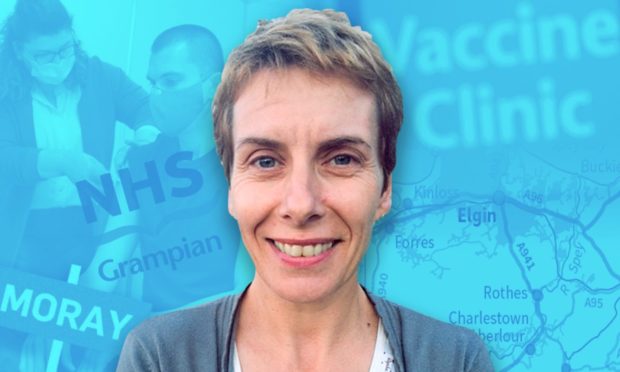The head of health intelligence for NHS Grampian has said she is “hopeful” about the Covid situation in Scotland.
Jillian Evans shared that the decline in positive cases in the past few weeks is a move in the “right direction” – but they still need to be a “lot lower”.
Yesterday, the number of people who tested positive for Covid was at its lowest since mid-August, with cases across Scotland gradually dropping.
According to the latest statistics, there were 2,069 new coronavirus cases reported, the lowest since August 17 and down 487 from Sunday.
Speaking on BBC’s Good Morning Scotland, Ms Evans said it was encouraging to see numbers drop – although admitted the figures could be skewed if young people are not going for testing.
She said: “Overall, my assessment is a hopeful one.
“The case numbers are reducing, they have been for the past three weeks or so fairly consistently, still at high levels as you say, very similar to that period in July when case numbers were very high, but they have been reducing.
“It’s fairly widespread across Scotland and the test positivity is reducing, so it’s now below 10% and that’s really good news.
“It needs to be a lot lower than that for us to feel we’ve got a sense of the pandemic, but nonetheless, absolutely going in the right direction.”
Importance of vaccinations
Ms Evans also told the programme that there are “some signs of stabilisation” when it comes to hospital admissions, although around two-thirds of people in intensive care have not received the vaccine.
She added: “Hospital admissions are starting to turn the corner a little bit. They are still high, and when I was working yesterday I was looking at numbers in my own neck of the woods and noticing that about 67% of our ICU admissions were in people who were unvaccinated.
“So, there are still people becoming seriously unwell in intensive care and haven’t been vaccinated, and I think that is a really important message.
“The uptake of the vaccination is looking really positive, and there is a study reported today on how keen people are to be vaccinated, particularly in the younger age groups. That gives us, again, cause for optimism.”
Since Monday, children aged between 12 and 15 in Scotland have started receiving appointment letters for their dose of the Covid vaccine, described as a “milestone” in the expansion of the programme.
Decrease in lateral flow testing
As students return to university there is a risk that case numbers will start to rise again, which Ms Evans says could also be linked to the decrease in lateral flow test use.
“The thing about the student population, a lot of them are vaccinated which is great, but contacts in the 18 to 29 age group are really increasing.
“They’re gone up by about 50% in the last few weeks, so that’s from mixing, doing all of the things you do when you’re out and about. And even if you’re vaccinated, of course, being with a lot of people in crowded situations, you put yourself at some risk.
“Alongside that, we’ve seen a reduction in lateral flow testing, particularly in testing before events. People taking lateral flows to check that they weren’t positive before they went somewhere seems to have dropped off, especially in my area.
The combination of people socialising more and the drop off in lateral flow testing while universities are returning is “one to watch”. Ms Evans reiterated that it is better to identify any potential cases through testing to stop the spread.
Herd immunity
When asked about herd immunity to Covid in Scotland, Ms Evans said it is something “we are nudging towards” but it is important to look at the population as a whole.
“I know we’re are talking about 80% of people having two doses, that ‘s great, but there’s still a huge proportion of the population who are unvaccinated.
“A lot of them are children obviously, but you need all groups to be vaccinated for protection at a herd immunity, a population level. Of course, we know that a lot of people have had Covid so they’ve got natural immunity too, so we’re nudging towards it I think, we are nudging towards it.
“The likelihood, of course, is that we will need to continue with things like boosters and so on for the highest level of protection, to make sure things don’t dip again.”
Despite her “hopeful” outlook, Ms Evans expects work for hospitals to be “really tough for some time” with staffing currently being the biggest concern.
“I don’t think it’s going to get easier. One day might seem better than the other, but it’s been a busy weekend here in Grampian, certainly in parts of it, and we expect that to continue right through the autumn and winter.”
